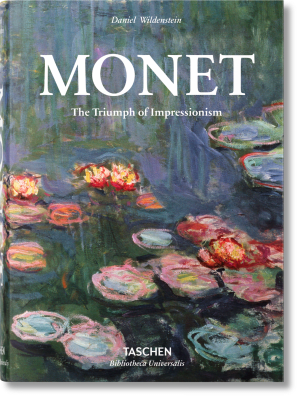Why the film is worth your time
If religion is a poison (as Hitchens would have it),1 Godspell is an antidote. Playfully serious, musically excellent, and rich in spirit, the film romps through New York City exploring and embodying wisdom from the Bible’s Gospel According to Matthew. If that already puts you off, stick with me a minute before you decide against it, because the film is a lot of fun.
Set in 1973, Jesus and his disciples are played as a joyful, clowning theater troupe, relishing in each other’s company. Creatively re-enacting Jesus’ parables, they make what props they can out of discards in a junkyard — an apt metaphor for our struggles to find life and goodness in the beauty and brokenness of daily life. The personalities and camaraderie are lovely. I could say that it’s not preachy or evangelistic, but that would make it sound like it has a risk of being so. It doesn’t. It’s not trying to be anything that would have that risk. Though it builds from Jesus’ words and wisdom, mostly just as he said them, the film is, at root, an exploration of community and love.
Introduction to the film
In the heart of busy New York City, eight twenty-somethings struggle to make their way. Shoved, yelled at, and indoctrinated by force into the grind of the city’s fast-paced, me-first manner, they each push back in their own way. Coming across Brooklyn Bridge into the City is a colorfully and curiously dressed man (John the Baptist) pulling behind him a red two-wheeled cart on top of which sits a horn (as in: from an animal, fashioned to make a loud noise). Each of the eight, in turn, sees a flash vision of John or hears his horn. The twenty-somethings gather and play in New York City’s Angel of the Waters Fountain. Each responds to the call, as if from their long-lost tribe, and the eight gather at Central Park’s Bethesda Fountain (also called Angel of the Waters Fountain), where they play in the water, splashing and dousing each other. Suddenly, New York has become deserted, not another soul to be seen. Jesus shows up to be baptized, after which he leads the troupe through Central Park and the City romping, teaching, singing, and living life to the full.
The twenty-somethings gather and play in New York City’s Angel of the Waters Fountain. Each responds to the call, as if from their long-lost tribe, and the eight gather at Central Park’s Bethesda Fountain (also called Angel of the Waters Fountain), where they play in the water, splashing and dousing each other. Suddenly, New York has become deserted, not another soul to be seen. Jesus shows up to be baptized, after which he leads the troupe through Central Park and the City romping, teaching, singing, and living life to the full.
- Released: 1973
- Running time: 103 min.
Reflections before you see the film
If you’re not Christian and have no thought to become so, why is Godspell worth your time? First off, because the film is a load of fun, if you let yourself enjoy it. But also, from a diversity and inclusion standpoint, you’d be reaching out, trying to get past stereotyped views of Christians, to understand from a new angle what some Christians actually aim for. Through its whimsicality, the film allows experiencing the heart of what Jesus was about.
I should hasten to add that the negative stereotypes of Christians can be justified because Christians all too often corrupt the heart of the gospel. But still, while it’s appropriate for detractors of Christianity to call out the misdeeds of Christians, Christian churches, and Christian institutions, such critiques do not impugn the heart of Christianity itself. As Augustine said: “Never judge a philosophy by its abuse.” True respect for diversity involves seeking to know what is behind another’s crusty exterior, so to kindly and graciously look for common ground on which to build bridges.
If you are Christian, the first reason to see Godspell is the same, but the second reason is to be drawn back, by way of reminder or corrective, to the core simplicity and joy of the life Jesus came to give. It is that life from which shines the light and love that everyone needs and longs for; light does not shine from a life of religious rites and practices.2 Yes, Jesus came also for the Cross, yet the Cross is not an end in itself but rather a path to life.
Stephen Schwartz’ lyrics and music are flowing, rich, and varied, deftly taking on the pace, tonality, and feel that each number needs, as well as embodying the wide, deep, and wry emotions that infuse a rich life (Christian or otherwise). Most all the disciples get at least some solo voice time, and all the voices are strong — some are amazing. The film’s colorful and odd-angled, quirky — even dorky — re-enactments, interspersed with moments of the seriousness of Jesus’ mission, bring to life the lighthearted joy mixed with true love seriousness that Jesus came for.
Lapsing for a moment into a bit of impertinence, I’ll say that some viewers may find themselves too “grown up” to connect with the film’s playfulness. Were the film’s dominant manners simplistic childishness, I would be right there with them. Instead, I find that, with perhaps a small number of exceptions, its playfulness comes off as an exuberant childlikeness. Would that we all retain that type of spirit — and even the ability to act just plain silly sometimes, for the fun of it.
Content awareness
There is very little to mention in the way of content. At most, there is one song sung in a sexually suggestive manner, a half-spoken expletive, and emotional intensity at the reenactment of Jesus’ Crucifixion.
The credits
- Director: David Greene
- Screenplay: David Greene, John-Michael Tebelak
- Leads: Victor Garber, David Haskell, Lynne Thigpen, Katie Hanley, Merrell Jackson, Joanne Jonas, Robin Lamont, Gilmer McCormick, Jeffrey Mylett, Jerry Sroka
- Cinematography: Richard G. Heimann
- Music: Stephen Schwartz, with a lyrical base from the Episcopal Hymnal and the Bible, except for “By My Side” which is by Jay Hamburger and Peggy Gordon
Where to find the film…and more
BudgetPet
NOTE: Reviews and content on other sites may have spoilers — without warning you.
- Watch Godspell on: Amazon Prime
- Buy Godspell DVD at: Alibris.com || Amazon.com
- Info on IMDb
- Reviews on Rottentomatoes (67%)
- Reviews on Metacritic (65 of 100)
- A Wikipedia listing of NYC locations used in the film is here
Endnotes
1 Hitchens, Christopher. God is not Great: How Religion Poisons Everything. Twelve, 2009
2 Jesus affirms this assertion when he applauds a Jewish scribe who says, "And to love [God] with all the heart and with all the understanding and with all the strength, and to love one's neighbor as oneself, is much more than all whole burnt offerings and sacrifices." (Mark 12:33)






